Tehran and Moscow interconnect local payment systems
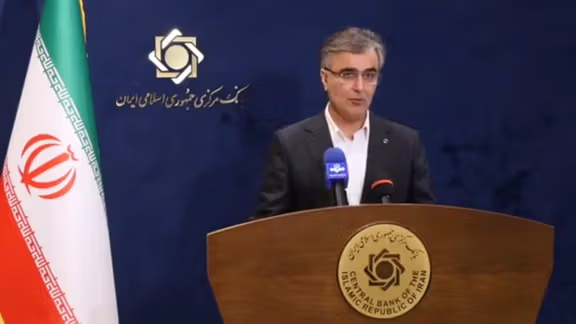
Iran and Russia have signed their first bilateral monetary agreement that they say is to strengthen financial and economic ties and counter the impacts of US sanctions on their economies.

Iran and Russia have signed their first bilateral monetary agreement that they say is to strengthen financial and economic ties and counter the impacts of US sanctions on their economies.
With Iran having joined the MIR payment system, the Russian alternative to Visa and Mastercard, Iranians will be able to withdraw money from Russian ATMs with Iranian bank cards from late August this year, the Governor of Iran Central Bank (CBI) Mohammadreza Farzin announced on Saturday.
“The second part of the plan was to connect Russia's MIR network to Iran's SHETAB. This is a project that the technical teams of the two countries have been working together for a long time, both in the Central Bank of Iran and in the Central Bank of Russia. Fortunately, this work has also been finalized,” Farzin said.
Farzin stated that Iran’s SHETAB system and Russia’s MIR payment systems are now operational, adding that the deal had been finalized during his with Russian counterparts on the sidelines of the Financial Congress of the Bank of Russia in St. Petersburg on July 4th.
“Iranian cards will be able to be used in Russian ATMs, almost in late August. Every person with an Iranian card can receive their funds in rubles from Russian ATMs,” he added.
He added that the second stage of this connection will be for the benefit of Russian nationals in Iran, and in the third stage, Iran's SHETAB cards will be able to be accepted at the point of sale (POS) terminals in Russian stores.
“This plan has three stages. The next stage is that Russian cards will be usable in Iran, and the third stage is that our SHETAB cards will also be usable in their stores,” Farzin stated.
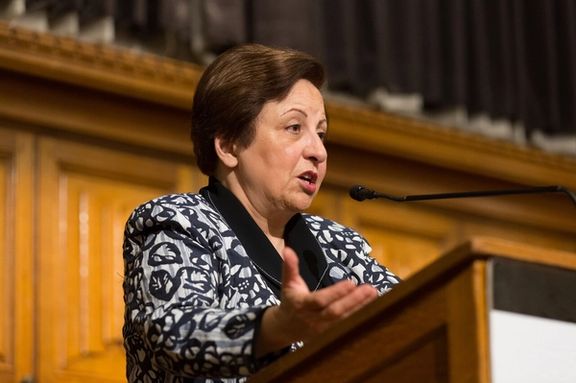
In the aftermath of Iran’s July 5 presidential runoff and 'reformist' candidate Masoud Pezeshkian's ascent to the presidency, Nobel Peace Prize laureate Shirin Ebadi has voiced strong criticism of 'reformists' in general and the newly elected president.
“Masoud Pezeshkian, a candidate close to reformists, became the President in an election where the majority of people did not participate,” she wrote in a post on Instagram on Saturday, highlighting the historically low voter turnout.
Ebadi asserted that Pezeshkian has assumed office amid a backdrop of political and security puzzles following the death of hardliner President Ebrahim Raisi in a helicopter crash on May 19. She added that Pezeshkian’s presidency is “another step for a third defeat of reformists,” referring to the failures of the two previous 'reformist' presidents, Mohammad Khatami and Hassan Rouhani, to address the country's woes.
She questioned whether the 'reformists' will now address the concerns of Iranians. Ebadi raised issues such as whether internet restrictions would be lifted or further tightened, and addressed the dire working conditions of workers across multiple sectors in Iran struggling to make ends meet. She further asked whether the quality of life, particularly for impoverished ethnic minorities in Iran's eastern Sistan-Baluchestan province and Kurdistan province in the northwest, would improve, and if the country's resources would be better managed to ensure adequate water in southwestern Khuzestan province are addressed.
"The reformists and moderates entered the political arena to salvage the regime," Ebadi concluded underscoring that without fundamental changes, “the will of the people” could become a powerful force that challenges and potentially dismantles the Islamic Republic.
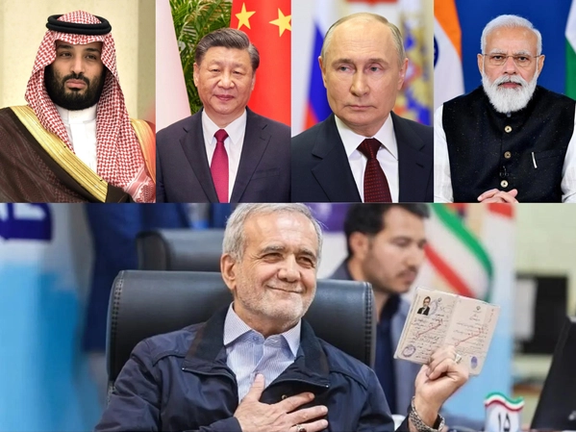
With the announcement of Masoud Pezeshkian as the winner of the July 5th Iranian presidential runoff vote, leaders from around the world have extended their congratulations.
The presidents of China, Russia, Syria, the Republic of Azerbaijan, and Iraq, as well as the prime ministers of India and Pakistan, the foreign minister of Venezuela, and Saudi Arabia’s king and crown prince were among the officials who congratulated the Iranian president-elect on his victory.
Saudi Arabia has called for bolstering ties following Pezeshkian's election. The kingdom's king and crown prince congratulated Pezeshkian through the official Saudi Press Agency (SPA) on Saturday. "I affirm my keenness on developing and deepening the relations between our countries and people and serve our mutual interests," SPA quoted Saudi Crown Prince Mohammed bin Salman as saying.
According to Chinese state media Xinhua, Chinese President Xi Jinping congratulated Pezeshkian and expressed his willingness to advance the China-Iran comprehensive strategic partnership. "I am willing to work with the President to lead the China-Iran comprehensive strategic partnership towards deeper advancement," Xi stated, as reported by Xinhua.
Russian President Vladimir Putin also extended his congratulations, with the Kremlin releasing a statement on Saturday. "I hope that your activities as president will contribute to further building up constructive bilateral cooperation in all areas for the benefit of our friendly peoples, in the interests of simplifying regional security and stability," Putin said.
Syrian President Bashar Assad sent a congratulatory message, emphasizing the goal of strengthening strategic relations and exploring new avenues for bilateral cooperation between Syria and Iran.
Indian President Narendra Modi congratulated Pezeshkian, expressing his anticipation of working closely to enhance "the warm and long-standing" bilateral relationship. “Looking forward to working closely with you to further strengthen our warm and long-standing bilateral relationship for the benefit of our peoples and the region,” Modi stated.
Pakistan’s Prime Minister Shehbaz Sharif and President Asif Ali Zardari also congratulated Pezeshkian.
“As neighboring countries, Pakistan & Iran enjoy a close & historic relationship. We must ensure a bright future for our two peoples through mutually beneficial cooperation,” Sharif wrote on X on Saturday.
In a post on X, Zardari reiterated that “Pakistan & Iran enjoy fraternal ties” and expressed hope that under Pezeshkian’s leadership, the relations between the two countries would grow.
In a statement on Saturday, the Venezuelan government extended congratulations to Pezeshkian.
“President-elect Pezeshkian and the Iranian nation enjoy the unwavering support of Venezuelan President Nicolás Maduro, whose goal is to deepen fraternal relations between the two nations through a comprehensive strategic alliance, fostering mutually beneficial cooperation and contributing to multiple global consolidations.”
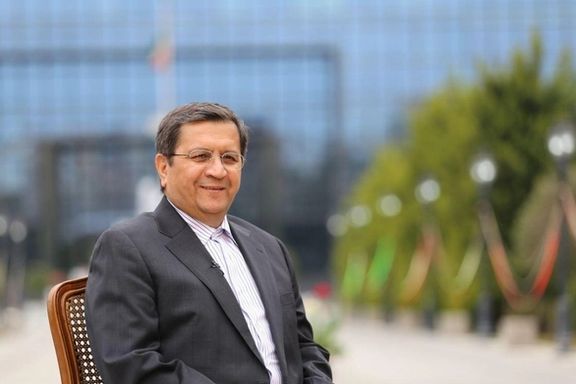
Former chief of Iran’s Central Bank, Abdolnaser Hemmati, told local media that one of the first tasks for the new president should be reaching an agreement with the West to lift sanctions.
In the first 100 days, “it is important to establish a policy of understanding with the United States and the three European powers to reduce sanctions and thus lower inflationary expectations. The government's first step should be to suppress these inflationary expectations,” Hemmati, a critic of Iran’s hardliners stated.
Nuclear negotiations by the Biden administration and Britain, France and Germany, which started in April 2021 failed to forge a new agreement to revive the Obama-era JCPOA nuclear deal. As a result, Trump administration’s oil export and international banking sanctions remained in place seriously impacting Iran’s weak economy.
Hemmati and numerous other experts and analysts in Tehran have long called for a change of course by the Islamic government, which has increasingly adopted a more hardline posture since 2020, not only in foreign policy but also in its repressive measures against social and political freedoms. Many hope that the election of the relatively moderate Masoud Pezeshkian can bring about a measure of change in both foreign and domestic policies.
The former chief banker is considered a ‘reformist’ who was a candidate in the 2021 presidential election when the hardliner candidate Ebrahim Raisi was elected amid heavy-handed engineering of the election process. He registered as a candidate again for the latest presidential elections but the notorious Guardian Council rejected his qualification.
“In the first 100 days, the government must demonstrate that it does not intend to continue the previous erroneous path,” Hemmati said. Although the new president, Masoud Pezeshkian has made many promises, he has offered few concrete plans for change. He has emphasized the need to improve relations with the international community, but when it comes to the United States, everyone believes the key is in Supreme Leader Ali Khamenei’s hand.
However, beyond improving ties with the West and lifting of sanctions, the government needs to open up the state-controlled economy to more market competition, Hemmati emphasized. “It is important to announce the main economic policy of distancing from a command economy and implementing primary policies based on competitive strategies to align and integrate the private sector with the state economy.”
Hemmati also highlighted his concern about Iran’s annual inflation rate hovering around 50 percent. The government must “correct wrong decisions to control the budget deficit and manage variables that lead to increased inflation."
With sanctions stifling oil revenues, the government has resorted to printing money to balance its budget, which has fueled runaway inflation in the past five years.
Calling for the president to be able to exercise his constitutional power, Hemmati said there is no need for a stronger or weaker president, but the constitution should be respected and applied in regards with presidential authority.
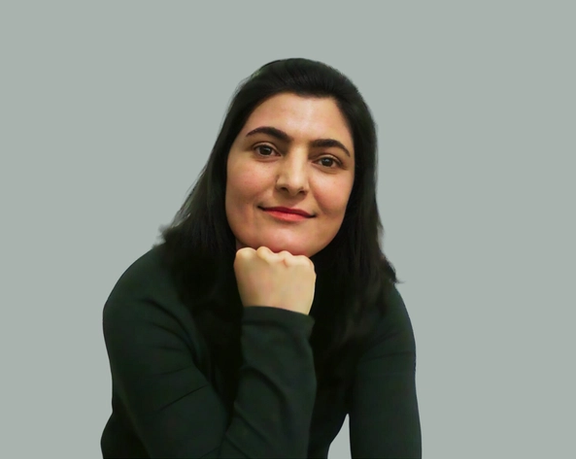
Zeinab Jalalian, one of the longest-serving female political prisoners in Iran, is in her 17th year of life imprisonment in the central city of Yazd, enduring severe health issues without proper medical care.
On Friday, the Human Rights Activist Network in Iran (HRANA) reported that Jalalian, despite suffering from multiple physical ailments, has been consistently denied the necessary medical attention and hospital transfers.
“Ms. Jalalian suffers from pterygium (an eye disease) as well as kidney and gastrointestinal diseases. Recently, due to pain in her right side, she was transferred to the prison infirmary. She was examined by the prison doctor, but no specialized treatment was provided. This political prisoner requires hospitalization and specialized care, yet the relevant authorities continue to prevent her transfer,” wrote HRANA.
Jalalian was arrested on February 26, 2008, while traveling on an intercity minibus in western Iran. Agents of the Ministry of Intelligence apprehended her at the entrance to the city, in front of dozens of passengers. During her detainment, Jalalian was subjected to severe physical and psychological torture, as reported by multiple rights groups.
In December 2008, she was sentenced to death by the Revolutionary Court in Kermanshah on charges of “enmity against God” (moharebeh) through “armed action against the Islamic Republic, membership of PJAK, possession and maintenance of military weapons and equipment, and propaganda activities in favor of anti-state groups” according to Kurdistan Human Rights Network (KHRN). Her sentence was commuted from execution to life imprisonment in October 2011.
In 2016, the UN Working Group on Arbitrary Detention determined that she was detained for the peaceful exercise of her rights to freedom of expression and association and denied her right to a fair trial. Amnesty International has repeatedly called on the Iranian authorities for her immediate release.
In January this year, Amnesty urged for her release again and stated that despite the findings of the UN Working Group on Arbitrary Detention, “Iranian authorities continued to subject Zeynab Jalalian to torture by deliberately denying her healthcare to coerce her into providing a videotaped ‘confession’ and ‘repenting’ for her past activities. Following at least two COVID-19 infections, Zeynab Jalalian has developed a lung condition and has trouble breathing – a condition that needs proper treatment.”
Jalalian has been transferred multiple times between various prisons, including Khoi, Qarchak, Varamin, Evin, Kerman, Kermanshah, and Yazd, without any leave. Her health has deteriorated significantly, with no respite from the prison authorities.
Numerous reports have highlighted the systemic neglect of medical treatment for political prisoners in Iran, resulting in the deaths of several inmates in the past.
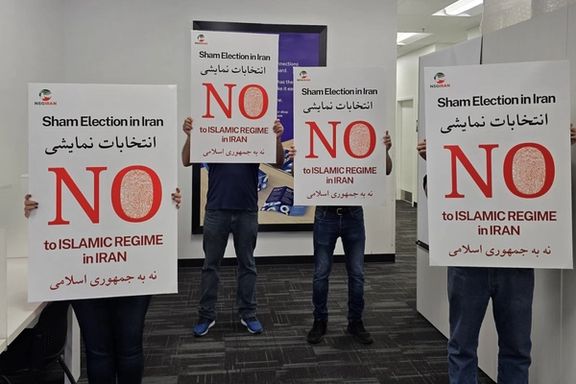
The Biden administration’s decision to allow Iran to hold votes on US soil sparked controversy on Friday, as Iranian-American activists gathered outside some polling stations to protest against those entering to cast their votes in Iran’s presidential election.
The campaign to boycott Iran’s election has been stronger than ever this year, leading to a record low turnout in the first round of the election. The turnout appears to have improved in the runoff according to official figures.
Outside Iran, the turnout is usually much lower than inside the country. But this time it has been even lower, and the opposition to those voting has been much stronger.
Witness reports and video clips published on social media show Iranian protesters gathering in front of Iran’s Interests Section (IIS) in Washington D.C. and confronting those going in and out. Similar videos have emerged from other polling stations in the neighboring states of Virginia and Maryland.
At least one station (in Tysons, VA) is reported to have been shut down following protests.
The US government had granted permission for 35 polling stations across the country, according to data published on the IIS website. The decision to allow voting for Iran’s election was criticized by activists who say the Biden administration should have followed the Canadian government and refused to allow stations to be set up in the United States.
It is unclear how many of those stations have in fact been set up and collected votes. In the first round, Voice of America conducted a study and found that out of 33 polling stations, 18 likely held voting. This was confirmed through Voice of America contacting 12 hotels and observing 6 stations based on social media images.
The main polling station was the IIS office in Washington DC. Iran International’s Ardavan Roozbeh, who spent the day outside the premises, said Iranian officials seemed to have purposefully scheduled many consular appointments for election day to drag Iranians to IIS to create a “participation illusion.”
“About 50 people were queuing from 8am, holding their passports and other documents,” Roozbeh said. “It seemed like they were queuing to vote, but they were just there for consular services and had no option because their appointment was scheduled for that day.”
The IIS represents the Islamic Republic in the US and offers consular services to Iranian-Americans.